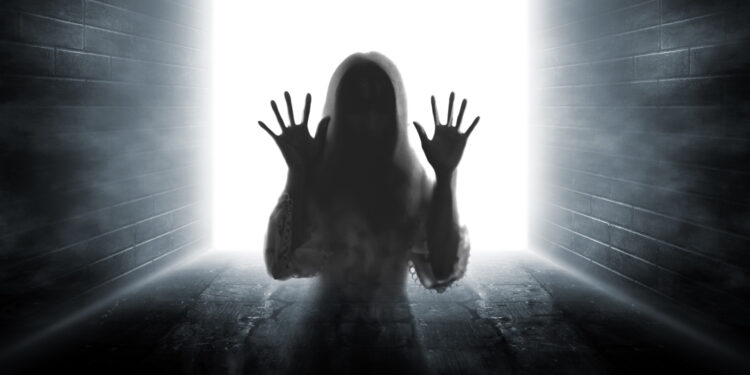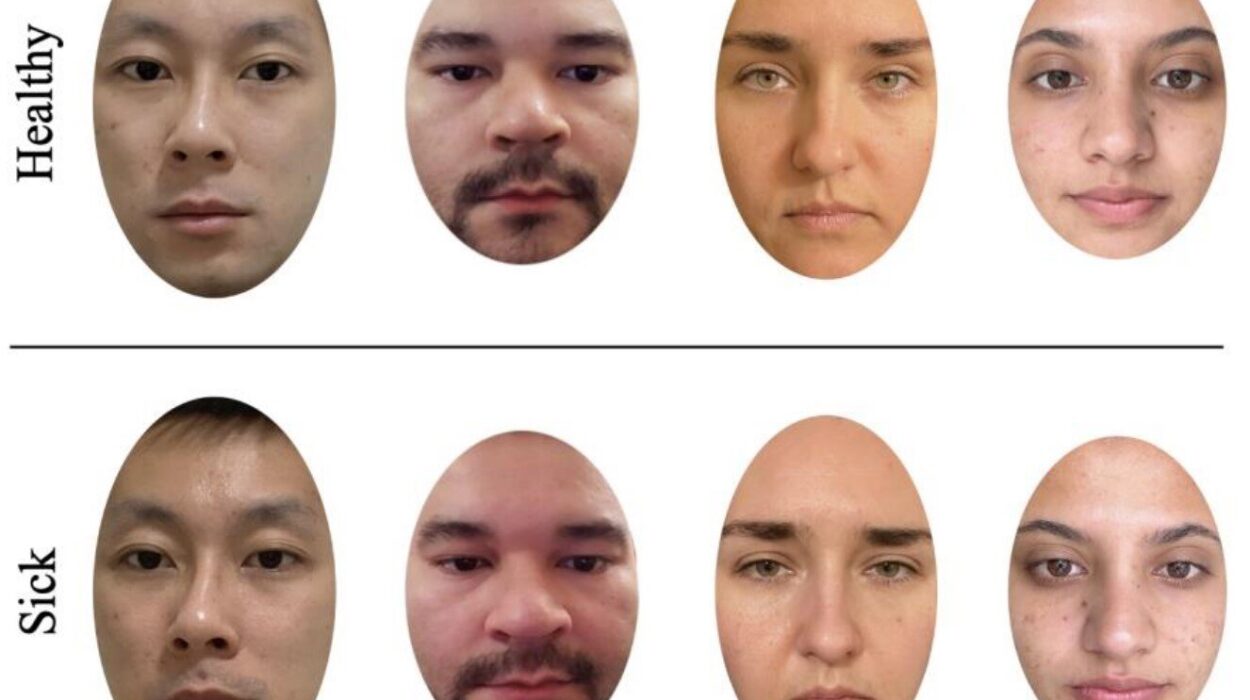When most people think of Denmark, they picture a society deeply rooted in reason, education, and secular values. The Scandinavian country consistently ranks among the most scientifically literate and least religious in the world. Its citizens benefit from a robust education system, strong social safety nets, and a culture that values critical thinking. Yet beneath this image of rational modernity, new research reveals something surprising: a large share of Danes still believe in supernatural forces.
It seems paradoxical. How can a nation that has largely moved beyond organized religion remain so attached to ideas of spirits, psychic energies, astrology, or even dream interpretation? The answer, as scientists are discovering, lies not in cultural backwardness but in the deeper architecture of the human mind.
The Study That Challenged Assumptions
The findings, published in Evolutionary Behavioral Sciences, come from a team led by Ken Ramshøj Christensen, an associate professor at Aarhus University. Motivated by earlier surveys in the United States that uncovered unexpectedly high levels of supernatural belief, Christensen and colleagues sought to test whether similar patterns would emerge in Denmark—a country widely considered one of the most secular on Earth.
They surveyed more than 2,200 Danish adults between late 2017 and early 2018 using an anonymous online questionnaire. Participants rated their level of belief in 39 different supernatural and scientific ideas, ranging from ghosts, angels, and reincarnation to evolution, vaccines, and psychological theories. By including both supernatural and scientific domains, the researchers hoped to map not just what people believe, but how these beliefs cluster and conflict.
Patterns in Belief: The Persistence of the Supernatural
The results were eye-opening. While only a handful of respondents admitted to believing in zombies (0.6%) or vampires (0.3%), far more endorsed beliefs that are harder to dismiss as fantasy. More than 30% agreed that human beings possess a psychic essence or soul. Around one in eight reported belief in angels, and one in four said they believed in ghosts. Belief in astrology attracted about 14%, while roughly a quarter endorsed dream interpretation as a meaningful way to access hidden truths about the subconscious.
Christensen confessed he was surprised. “Almost one in five Danes believes in angels or is unsure whether they exist,” he noted. “And nearly a quarter believe in ghosts. These are not marginal figures in such a secular society.”
But the most important finding was not simply the percentages. Beliefs were not randomly scattered but fell into recognizable clusters. Those who believed in angels were also more likely to believe in ghosts, reincarnation, and psychic energy, forming what the researchers called a “spirituality” cluster. Meanwhile, beliefs in clairvoyance, tarot, magic, and crystal healing gravitated toward a “magical thinking” cluster. A separate grouping emerged around aliens and conspiracy theories, labeled “openness to alternative explanations.”
In sharp contrast, strong belief in science—whether in evolution, neuroscience, or the explanatory power of psychology—was negatively correlated with supernatural belief. People tended to fall on one side or the other: anchored in scientific reasoning, or drawn to unseen forces beyond it.
Who Believes, and Why?
The study also explored how demographic factors shaped belief. Here too, fascinating patterns emerged.
One of the strongest predictors was sex. Women were significantly more likely than men to endorse supernatural ideas across almost every category—from spirituality to magical thinking. Men, by contrast, scored higher in belief in science. The researchers suggested this gap may reflect cognitive styles. Women, on average, score higher in empathizing traits—skills that favor emotional understanding and intuitive reasoning—while men score higher in systemizing traits, which emphasize rule-based analysis and abstract logic. These differences may subtly shape how individuals interpret ambiguous events or approach belief systems.
Education also played a role, but less dramatically. Those with more years of schooling reported somewhat lower levels of supernatural belief, particularly when it came to conspiracy theories and magical thinking. Yet the effect was small, suggesting that even in a country with universal access to higher education, intuitive beliefs are not easily erased.
Religiosity, unsurprisingly, proved highly influential. Those who identified as religious were more likely to believe in angels, spirits, and psychic forces. But intriguingly, even among nonreligious Danes—who made up nearly two-thirds of the sample—supernatural ideas still flourished. This suggests that belief in the paranormal often operates independently of formal religion, tapping into deeper psychological needs.
Age, by contrast, showed no significant relationship. Belief in the supernatural, it seems, cuts across generations.
Why Supernatural Thinking Endures
If Denmark—with its secularism, education, and social stability—cannot escape belief in the supernatural, what does that tell us about human nature?
Psychologists point to evolved cognitive tendencies. Our brains are wired to detect patterns and agents in the environment, even when none exist. This “hyperactive agency detection” once had survival value: mistaking wind in the grass for a predator was safer than ignoring a real threat. Similarly, attributing meaning to coincidences may have helped our ancestors bond socially, find purpose, or maintain hope during hardship.
These ancient instincts still operate today. When we sense a presence in an empty room, when we find comfort in rituals, when we interpret dreams as messages, we are engaging cognitive shortcuts that once aided survival. Education can temper these tendencies, but it rarely eliminates them.
Moreover, supernatural beliefs often serve emotional and social functions. They can provide comfort in the face of death, foster community among believers, or offer a sense of control in an unpredictable world. In this sense, they are less about intellectual error and more about emotional resilience.
The Tension Between Science and Belief
The study highlights an important truth: science and supernatural belief often exist in tension, but they also share the same root—human curiosity. Both arise from our desire to explain the unexplainable, to find order in chaos, to make meaning out of mystery. Where science demands evidence and welcomes correction, supernatural thinking often resists falsification and thrives on intuition.
Yet dismissing supernatural belief as mere irrationality risks overlooking its psychological value. A belief in angels may not align with scientific reasoning, but it can offer solace to someone grieving. A reliance on astrology may not predict the future, but it can help people frame their hopes and fears. These functions, while not scientifically grounded, are deeply human.
At the same time, the persistence of magical thinking poses challenges. When beliefs in conspiracy theories undermine trust in vaccines or public institutions, they can carry real-world consequences. The Danish study reminds us that even in highly educated societies, vigilance is needed to protect scientific literacy while respecting the emotional roots of belief.
A Mirror for Humanity
What emerges from this research is not simply a portrait of Denmark but a mirror held up to humanity itself. No matter how secular, rational, or educated a society becomes, the pull of the supernatural remains. It is not an anomaly of ignorance but a feature of the human mind—an echo of our evolutionary past and a reflection of our emotional needs.
For Denmark, these findings complicate the story of secular modernity. For the rest of us, they remind us that belief and science are not mutually exclusive realms but entwined aspects of the human condition. We are pattern-seeking creatures, driven both by logic and by wonder. Sometimes those patterns are real, revealed by the rigor of science. Sometimes they are imagined, sustained by faith, intuition, or hope. Both, however, speak to our desire to make sense of a vast and mysterious world.
The Ongoing Conversation
Christensen and his team emphasize that their study is only the beginning. The survey was not randomly sampled, and regional biases may have influenced results. Future research could track how beliefs shift over time, how cultural events shape them, or how education might refine them.
Yet even with these caveats, the message is clear: the supernatural is not vanishing from modern societies. It adapts, persists, and intertwines with secular life in ways that defy simple narratives of progress.
Science may illuminate the mechanics of the universe, but belief—rational or otherwise—illuminates the human heart. To understand one, we must also understand the other.
Closing Thoughts
In the end, Denmark’s paradox is our own. We are creatures of reason who still dream of spirits. We are builders of telescopes who still whisper about ghosts. We are skeptics who still find meaning in symbols and signs.
Science will continue to push back the boundaries of knowledge, and rightly so. But perhaps the persistence of supernatural belief reminds us of something essential: that beyond the quest for explanation lies an equally powerful quest for meaning. And in the dance between reason and wonder, we find the full measure of what it means to be human.






